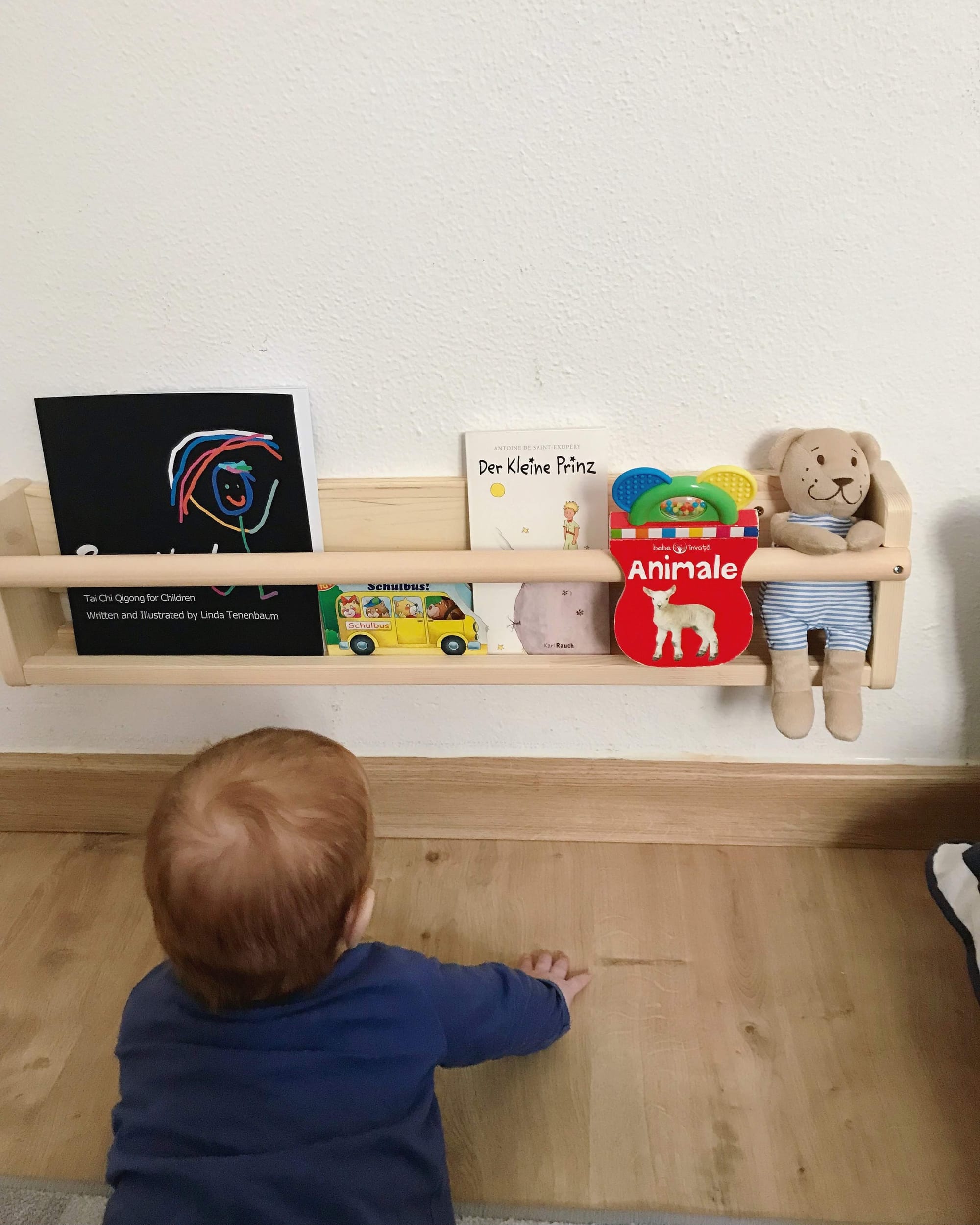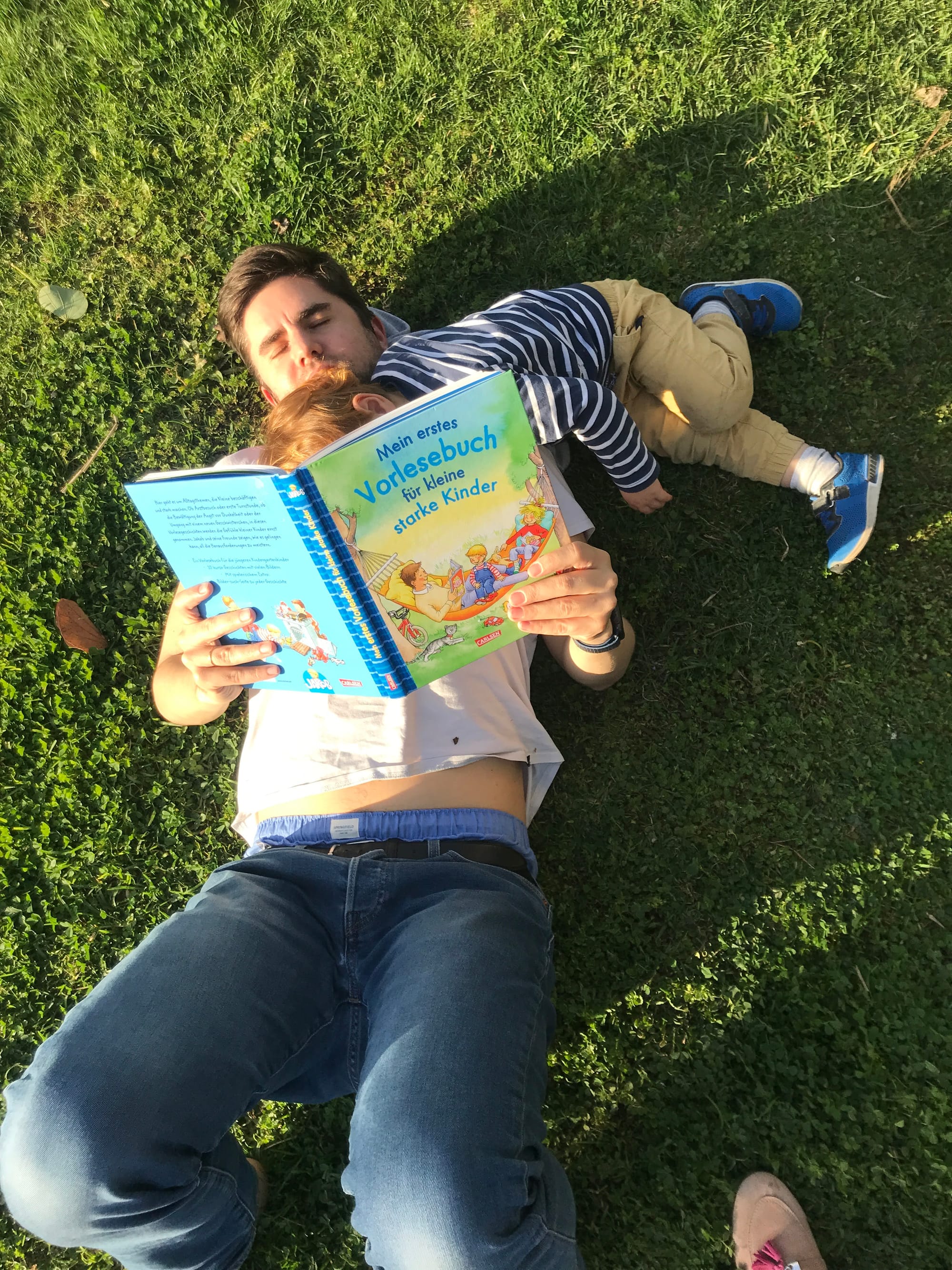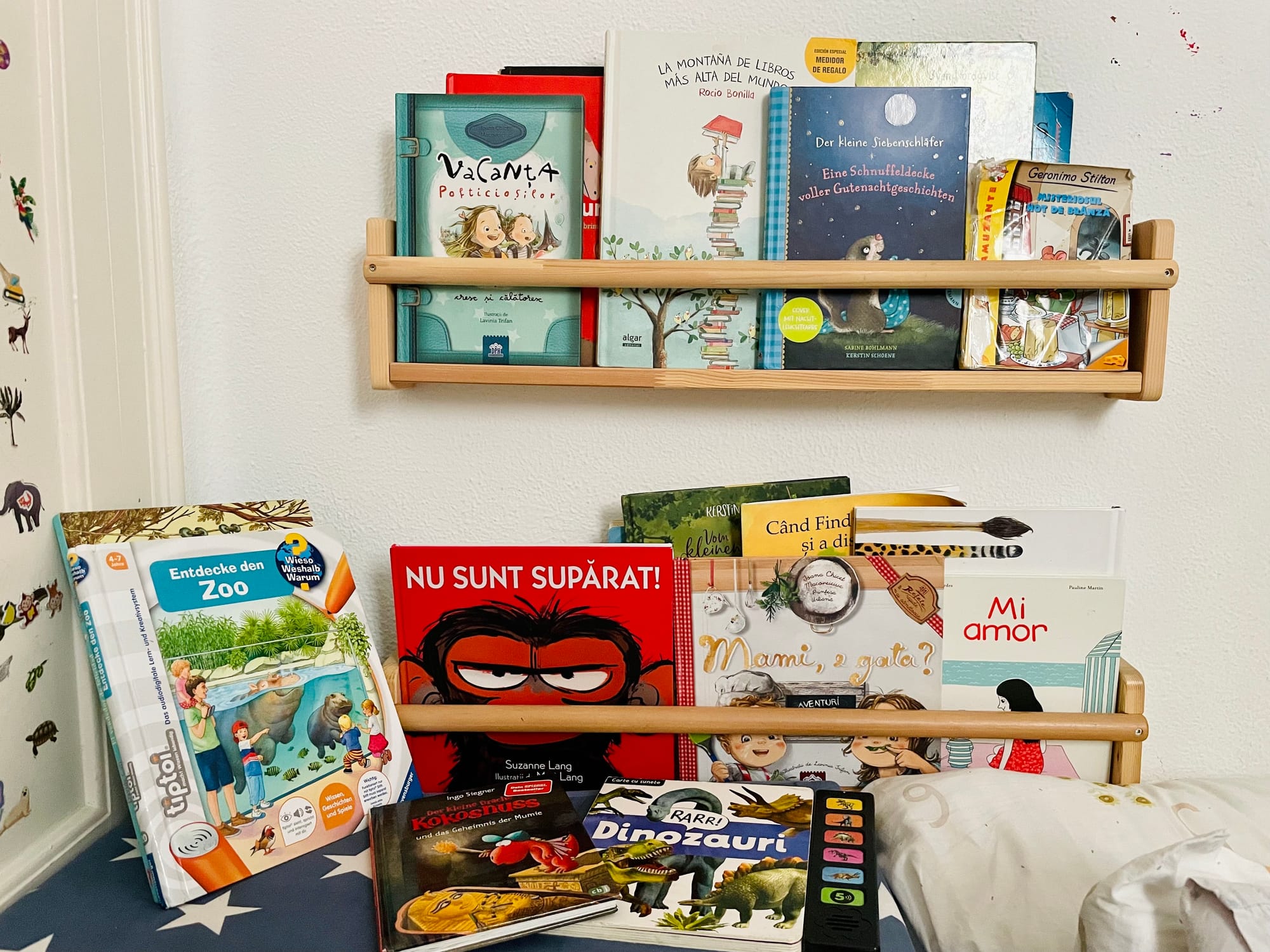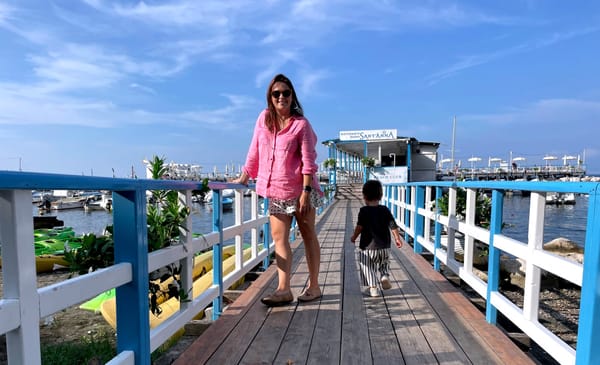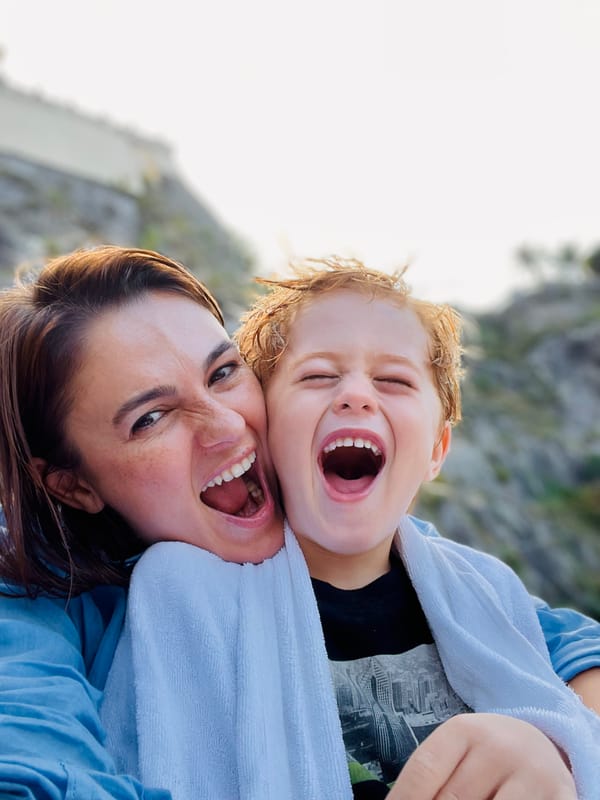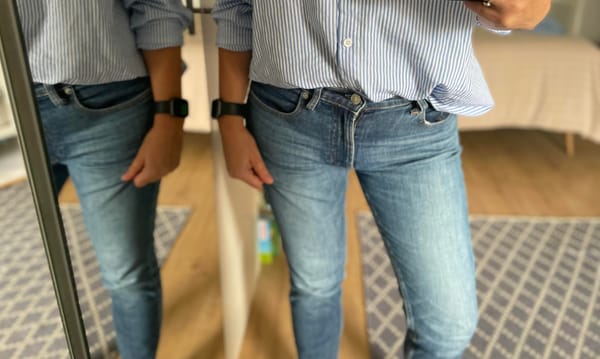Plurilingualism: how our child manages 4 languages
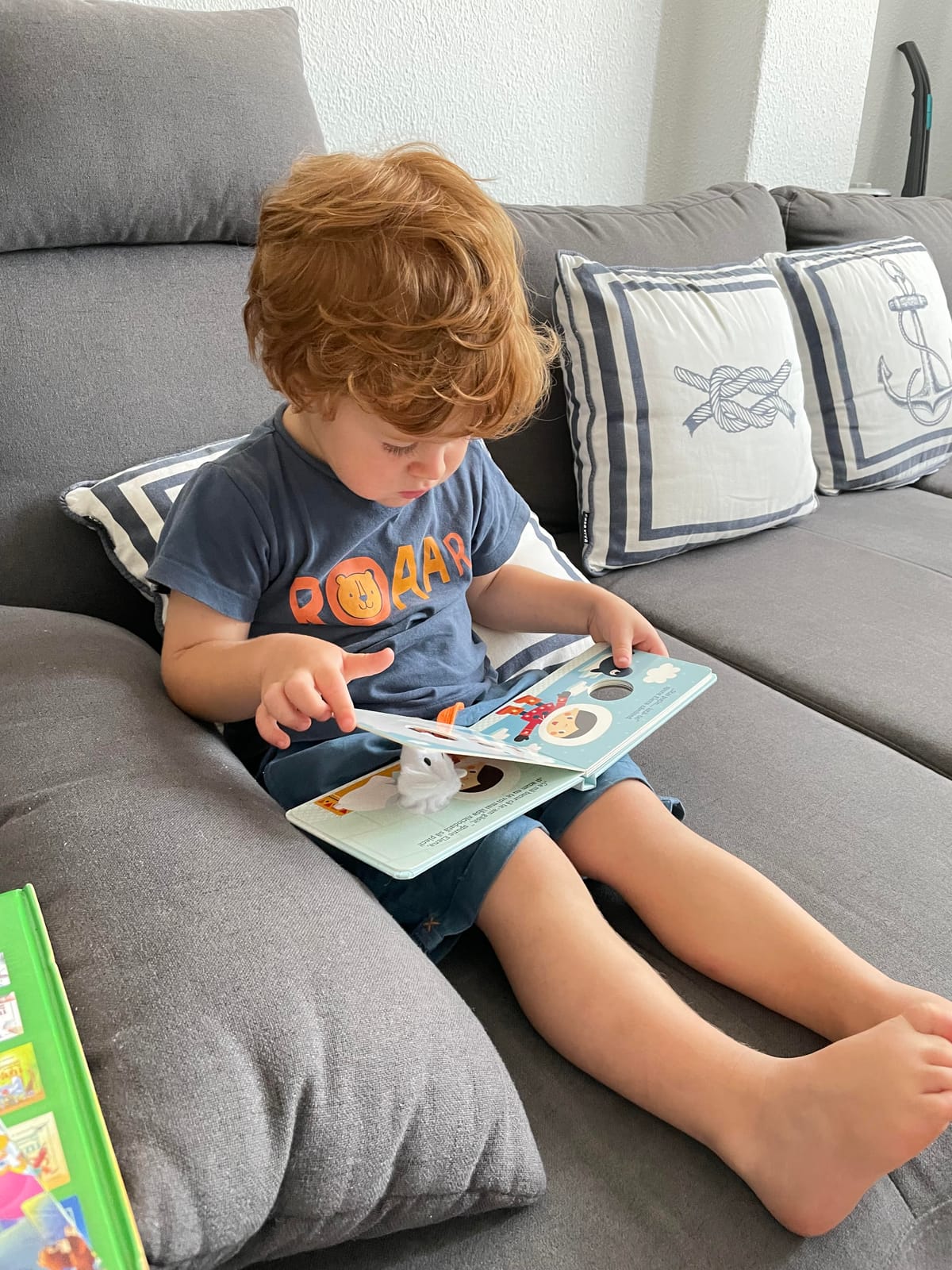
Hola!
Mehr apa! (German-Romanian = “More water”)
Cayo aloi! (Spanish-Romanian = “The airplane fell”)
Coconoi-auto (combination Romanian-German = “garbage car”)
These are “phrases” that my boy of 1 year and 7 months would use daily. This is the way he communicates. We could say that he speaks 4 languages, understanding five. He speaks Romanian, German, Spanish and Bebe-language (that’s his own) and understands bits of English. If you are wondering where this “language-salad” comes from, here’s the explanation: I am Romanian, my husband is German, we talk in English between us, but we live in Spain.
Plurilingualism example
Even before planning to have a baby I was interested in plurilingualism, children who speak more than one language. The first time I was hooked by the topic was while visiting my husband’s friends living in Germany. The mother was French and the father German. After expressing my surprise about how nicely the older girl, maybe 5 at that time, understands and speaks both languages, the mother told me with a very severe tone that “I ONLY speak to her in French!” She added inmediately that in case the girl is missing the language, mother will correct her: “No, you have to tell me that in French.” I felt her toughness and took that imagine of her with me, so once in a while I was reflecting about it.
While pregnant, my husband and I decided that we were going to communicate to our son in each one’s native language, me in Romanian and my husband in German. And, the baby … will have to adapt. In the end, he chose us … kidding.
Previous worries & fears about communication
In the same period, I was also obsessed with parenting books (still am), reading everything I could find and looking for the best recommendations, cause I was having a clear deadline, obviously. However, I didn’t stress myself about this topic of communication.
But I admit it felt weird to “talk” to my belly in Romanian, while my husband didn’t understand what I was saying. I was thinking how difficult it will be for us to have each one its one-way-channel with the baby. I was worried that it would be complicated, it would be more hard-work, and it would be unsuccessful.
I felt everything you could imagine and all the scenarios came to mind. However, I tried to not let my thoughts control me and kept going back to my mantra “we will adapt”. It is true I had a pretty happy pregnancy. Except some fake but painful contractions, the Braxton Hicks, due to too much walking, working etc everything was great. My state of mind, included. Therefore, I was not really worried about these thoughts that were coming only once in a while…
“Welcome to this wonderful world” in Romanian
The big day came, and the very first time I had my boy in my hands, I told him “Welcome to this wonderful world” in my native language, Romanian. I kept talking to him in my language and only my language. And it felt … just natural <3
The years before this moment, while living in Spain, I was speaking Romanian only with my parents when calling them, maybe once a week; with friends once in a while. So it happened to me to forget words, to not find them fast enough, to invent words by adapting some from Spanish… However, despite all of these “issues”, when it came the moment to hold my boy in my arms, I felt that Romanian was the direct road between my heart and his.
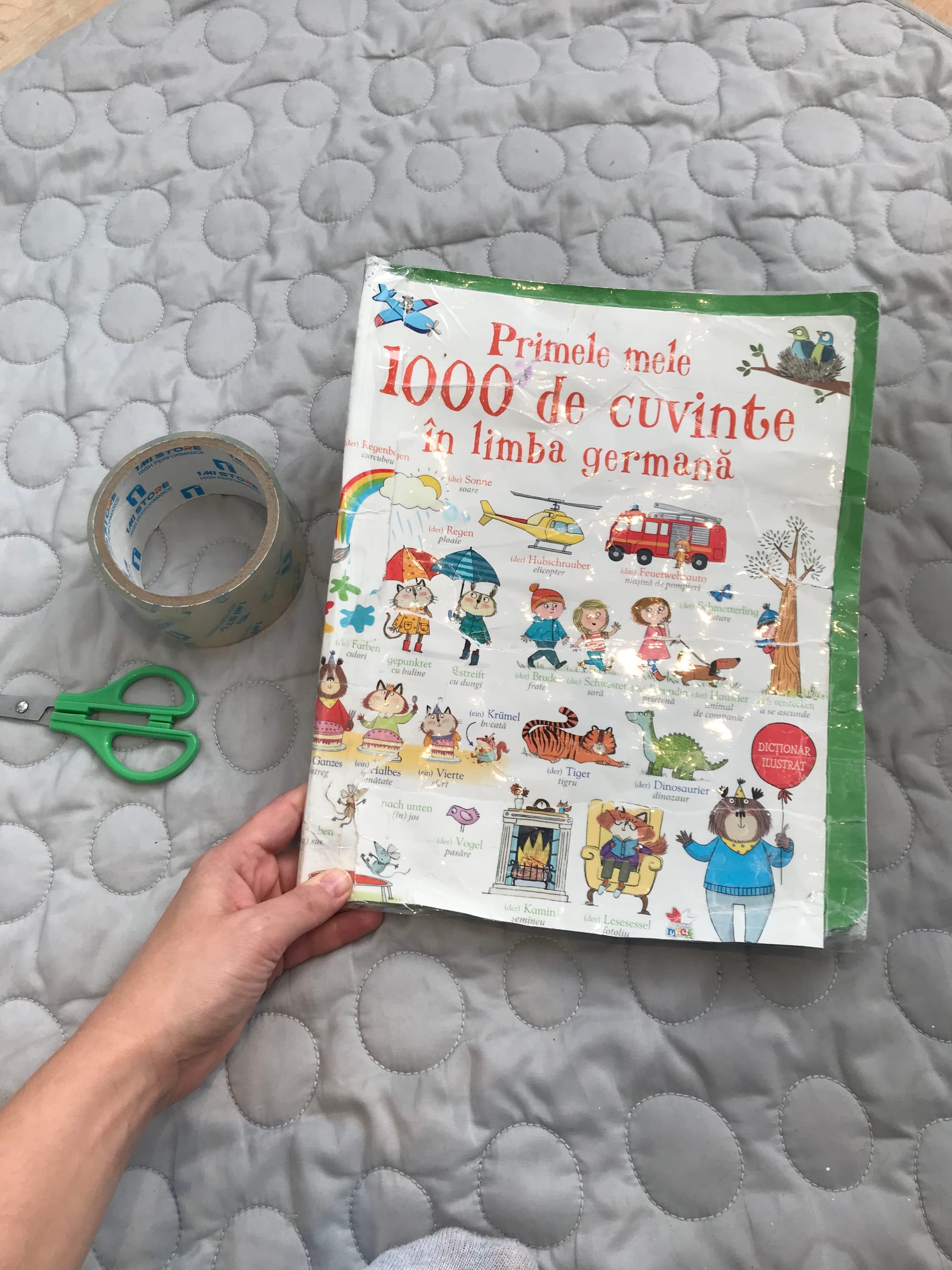
German, the father’s language
My husband talks to him only in German.
I admit that, in the beginning, it was weird, but as the days passed by, we felt more and more comfortable in this ocean of communication made of so many different waters. There were many moments when I didn’t understand what my husband was saying to my son … and most of the time, I let them go. But there were other moments when I also asked him what he was saying to the baby, what was that specific word and so on.
As I’ve told you before, I was reading a lot of books. So, in the first months, I was paying attention to how my husband interacted or spoke to our son, just to be sure he was respecting the guidelines that I knew were the best. Maybe it sounds a bit controlling, I know. But my ego was also justifying this action because hey, I was the one who read the books. 🙂
By the time our boy was one, we were already not feeling the “differences”; it felt normal to talk as we did. I was talking to my son in Romanian, to my husband in English and to our friends in Spanish; while my husband was, of course, talking in German to our son.
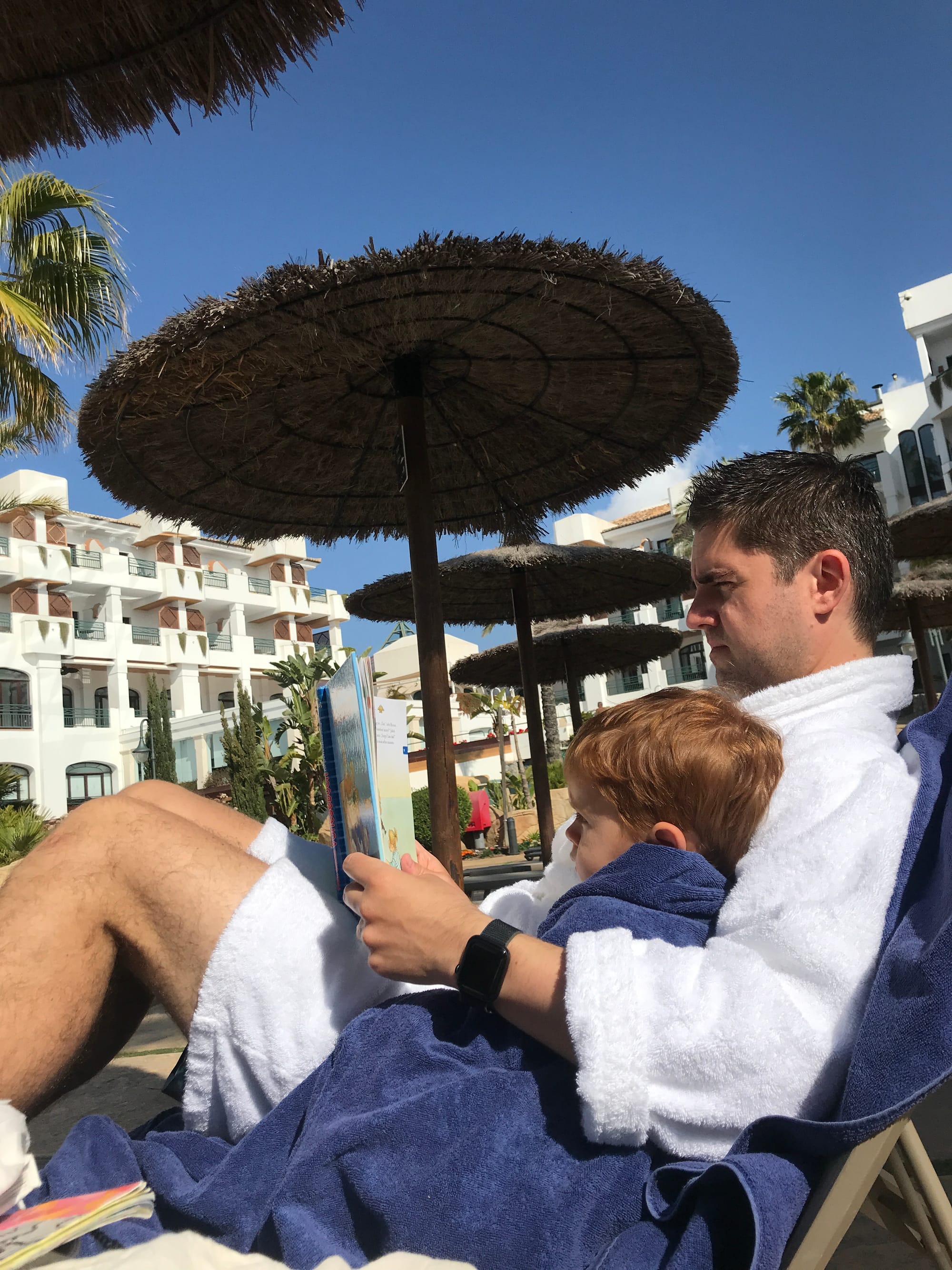
Communication at 19 months
At 19 months he speaks bits of all languages. Here are some interesting points that I’ve noticed:
The most interesting thing is that for one specific concept, Noah chooses the easiest term in pronunciation of all languages. For example:
- for the object Ball, the words are: Ball (German), minge (Romanian), pelota (Spanish). What is Noah saying? Obviously, “ball”.
- airplane: avion (Romanian and Spanish), flugzeug (German). He is saying his version “aliol” closer to Romanian and Spanish.
- car: masina (Romanian), coche (Spanish) and auto (German). He chose “auto” from German and the easiest one. The Romanian and Spanish words have difficult accents.
The second thing about his communication is that he’s saying the last sounds of the words. Some examples:
- Avocado is the same in all languages, so his version is “cado”.
- Broccoli, he’s saying it “cole”
- Crocodile (only small differences of pronunciation in the 4 languages) is “cocole”
What we’ve done specifically
I’m a passionate follower of the work of Janet Lansbury, and besides her parenting view, I consider myself a spiritual person, interested in personal development, reading a lot about mindfulness, awareness and the power of thoughts, the energy we create and we share in the world. Therefore, I have deep inside of me the principle that words and thoughts can both heal and create suffering too. Respecting this belief, I did the following things:
- I’ve talked to my son from the first moment of his life, with a warm tone. I believe babies understand everything, in their unique way, a sensorial way.
- I was always explaining to him what I was doing, as if he were an adult. Like really, if you want to make a coffee, you may tell your partner “Hey, I am having a coffee. Do you want one too?” So, I was also saying to baby “Hey, let’s go now in the kitchen so I can make myself a coffee! I need some extra energy”
- I was talking to him expressing with my words what he may see, feel, smell, touch with the idea to describe what he senses but can’t express. For example:
- “The coffee smell is strong, right? I really like this smell!”
- “Now we go and I’m changing your nappy. I am opening your blouse. … Wow, did you hear the bottons opening?”….
- Now I’m going to clean you with water. Maybe it’s a bit cold? What do you think?…etc etc”
- We are reading to him, his books and even from my books 🙂 And we read a lot!
It may be weird for the caregiver to talk “alone” but it’s so so useful for both: the baby’s brain is on fire with words, expressions, linking his senses to the words s/he hears; and the parent feels connected to the baby, and even more present, more aware of what’s happening in that moment. Easily, while changing the diaper, the parent’s mind can drift to all “I-have-to-dos” or rumingate on some bad emotions … and therefore, not being present.
I hope it doesn’t sound stupid or non-sense. I actually believe the opposite: how weird is to move around a person without saying anything to him/her?
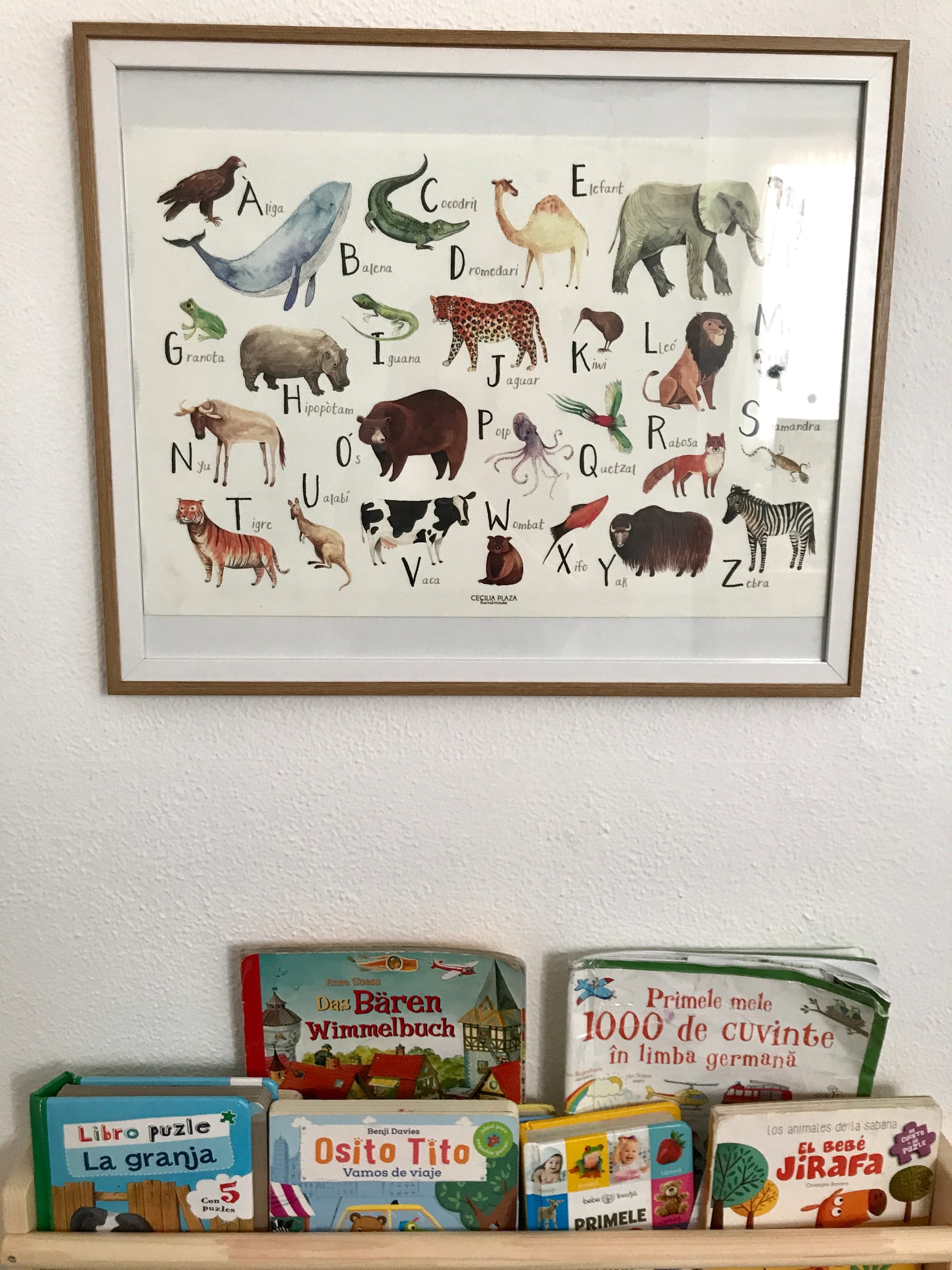
Special mentioning about “Hello”
After reading those parenting books, and listening to the podcasts of Janet Lansbury, I had a clear idea that the environment is very important for the baby: the way he will understand the world and even life itself is through the interactions with the people around. I heard this idea that children from a very small age sense if the world is a good place to be, or if it’s a hostile one. Therefore, having this idea in my mind, I was telling him mostly in Spanish the words for “Hello!”, “Good bye!” and “Thanks”, and not necessarily in Romanian. In that way, he could interact with the people outside the house, Spanish people.
At some months old, his interactions were “smiling back” to elderly when they were waving or saying Hola… Once he was around ten months old, he even started saying a short version of Hola (if it was even possible to be shorter than that). In time, I found that this strategy was very good! Noah was waving, smiling to all those who were interacting with him and they were more than delighted for a baby (and such a cute redhead one) to smile back at them.
I wasn’t worried that he may not understand the Romanian versions of these words, since we weren’t surrounded by Romanians. And of course, I was sure that at some point he would learn the Romanian versions of these words. The German ones were learnt at the German-Spanish kindergarten where he was going.
In a nutshell about plurilingualism
I would still have many things to tell you about this topic. However, some conclusive thoughts about it:
- Children are amazing, incredible! All, no exceptions! They can learn anything!
- Be consistent! Be consistent and consistent! Yes, it is harder for the parent to always find the energy to switch between languages! Be prepared for feeling mentally exhausting; but in time it will get easier. But again, consistency is the key!
- The effort or sometimes the frustration that you may feel in the process will pay off! I like how Spanish people always tell me that this is “a gift for life” for Noah!
Indeed, speaking foreign languages, learning them naturally, with age, in different contexts of life, with play and fun, without exams, without paying for classes and so on… is a gift for the future adult. A gift that Noah, and all plurilingual children, will be keeping unwrapping during a lifetime.
Hugs from sunny Valencia, Andreea!
______ I wrote this article in April 2020 but never published it. I hope this year I will come back on the topic so I can tell you how my sons are handling the 4 languages. _______
